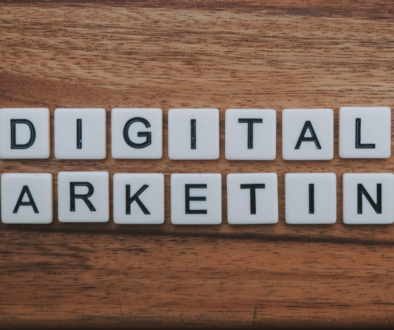The Future of Marketing: Emerging Trends and Strategies for Success
As the marketing landscape evolves, fueled by advancements in technology and changing consumer behaviors, businesses must adapt to stay competitive. The future of marketing is set to be characterized by innovation, personalization, and sustainability. Here are some key trends and strategies that will shape the future of marketing.
1. Hyper-Personalization
In the coming years, hyper-personalization will become a cornerstone of successful marketing strategies. As data analytics and AI technology improve, marketers will gain deeper insights into individual consumer preferences and behaviors. This will enable them to create highly targeted and relevant marketing campaigns that resonate with consumers on a personal level.
Hyper-personalization goes beyond simply addressing customers by their names in emails. It involves leveraging data to tailor product recommendations, content, and communication channels to meet the unique needs of each customer. Brands that invest in hyper-personalization will not only enhance customer satisfaction but also foster brand loyalty and drive conversions.
2. Voice Search and Conversational Marketing
With the rise of voice-activated devices, voice search is becoming increasingly prevalent. In the future, marketers will need to optimize their content for voice queries to ensure visibility in search results. This shift will require a focus on natural language and conversational tone in content creation.
Conversational marketing, which includes chatbots and messaging apps, will also gain traction. Brands that adopt conversational marketing strategies can engage customers in real-time, providing instant answers to inquiries and personalized recommendations. This approach enhances the customer experience and fosters a more interactive relationship between brands and consumers.
3. Emphasis on Video Content
Video content has become a dominant force in marketing, and this trend will only continue to grow. Consumers increasingly prefer visual content, making it essential for brands to incorporate videos into their marketing strategies.
In the future, marketers will leverage live streaming, short-form videos, and interactive video experiences to capture audience attention. Platforms like TikTok, Instagram Reels, and YouTube will remain central to video marketing efforts. By creating engaging video content that tells a story, brands can effectively convey their messages and drive engagement.
4. Sustainability and Ethical Marketing
As consumers become more socially and environmentally conscious, sustainability will play a significant role in marketing strategies. Brands that prioritize ethical practices and transparent communication will resonate more with modern consumers.
In the future, marketing campaigns will increasingly focus on showcasing sustainable initiatives, eco-friendly products, and corporate social responsibility efforts. Brands that can effectively communicate their commitment to sustainability will not only attract environmentally conscious consumers but also build trust and loyalty.
5. AI and Automation in Marketing
Artificial intelligence and automation will continue to transform marketing strategies. AI-driven tools can analyze vast amounts of data, providing insights that enable marketers to make informed decisions and optimize campaigns in real time.
Automation will streamline repetitive tasks, allowing marketers to focus on strategy and creativity. From email marketing to social media scheduling, automated solutions will enhance efficiency and effectiveness, leading to improved ROI. Brands that embrace AI and automation will have a competitive edge in an increasingly data-driven landscape.
6. Community Engagement and Brand Loyalty
The future of marketing will emphasize building authentic relationships with customers. Brands that prioritize community engagement and foster a sense of belonging will strengthen customer loyalty.
In the coming years, marketers will focus on creating communities around their brands, using social media platforms and online forums to facilitate discussions and interactions. By actively engaging with customers and responding to their feedback, brands can create a loyal customer base that advocates for their products and services.
7. Data Privacy and Ethical Marketing Practices
As data privacy concerns grow, marketers will need to prioritize transparency and ethical data practices. Consumers are becoming increasingly aware of how their data is used, and brands must respect their privacy preferences.
In the future, marketers will need to find a balance between personalization and data privacy. By implementing clear consent practices and communicating how data is used, brands can build trust with their audience. Ethical marketing practices will not only comply with regulations but also enhance brand reputation.
Conclusion
The future of marketing is set to be shaped by hyper-personalization, technological advancements, and a commitment to sustainability. As consumers become more discerning and demand authentic engagement, brands that adapt to these trends will thrive. By embracing AI, leveraging video content, and prioritizing community engagement, businesses can effectively connect with their audiences and drive growth in an ever-evolving landscape. The key to success in the future of marketing lies in innovation, empathy, and a deep understanding of consumer needs.


